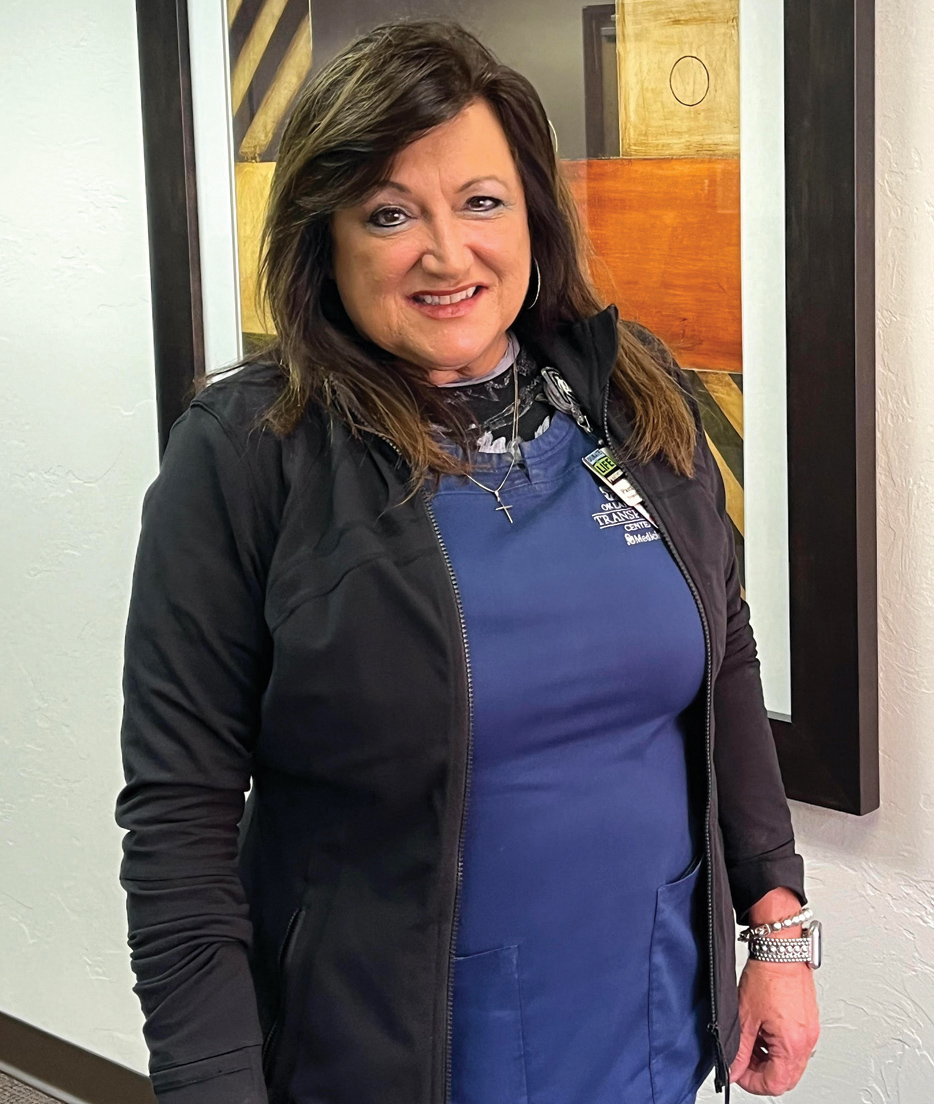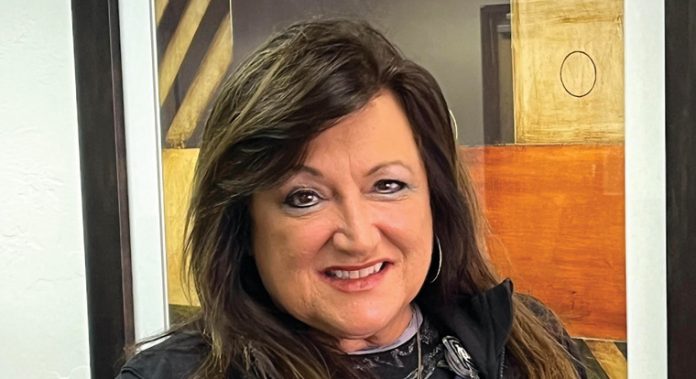story and photo by James Coburn, Staff Writer

Time is of the essence for patients waiting for organ transplants. Organ donors are desperately needed as the average wait for a kidney transplant is four years.
“It takes 10 to 12 years to be on a list to get a kidney on the East and West Coasts,” said Pam Toho, RN, kidney and pancreas coordinator for pediatrics and adults at the OU Health Transplant Institute, located in Oklahoma City. “And in the Bible Belt here, our wait time is four to six years for them to get a kidney. So, all the people that can are flying into Oklahoma and the Bible Belt.
It’s everyone’s right to multi-list in many states to get a kidney, liver, or a pancreas quicker, Toho said. The OU Health Transplant Institute has a 275-mile radius of local organ offers that they receive first. If there is not a local organ match, then the search goes national.
“We want them to stay here at OU, but our whole mindset is to be an advocate for the patient,” Toho said.
One of her favorite things about being a nurse is calling someone to say, “Hey, we have a potential organ offer for you. Today could be your day.”
There remain a few hurdles to overcome before they get to the final finish line for an organ that matches them.
“We have to see if they have to be dialyzed. When we take their blood, we make sure there is no infection in their bodies because if we’re going to transplant someone in the OR, we wipe their immune system out.”
It takes three months for the immune system to rebound, so there should be no open wounds or sores present on the patient. Harm could be done if infections are present.
An adult male recently flew in from California where he had been on a waitlist for five years. The operating room was set for him after the crossmatch was done. Blood was flown in during the middle of the night. The medical staff observe patients closely to ensure their immune system is healthy.
“It’s almost like a seesaw with doctors balancing their medications, looking at peaks and throughs to get a therapeutic level,” Toho explained. “That’s what we look for, so your body doesn’t attack the kidney and reject it.”
Organ recipients continue to be monitored for three to five years, getting them evaluated and keeping them healthy. Once a transplant is completed, the patient is seen twice a week for the first three months; then once every two weeks for a couple of months, followed by once-a-month evaluations for a year or two.
“Then we refer them back to their nephrologist and see them once a year to keep tabs on the organ itself. We have a relationship to see if they need a kidney again,” she continued.
The OU Health Transplant Institute averages 40-50 pediatric and adult kidney transplants a year, involving both living and deceased kidney donors. Each year, that includes 7-10 pediatric kidney transplants.
“That’s exciting. It’s been a while since we’ve had parents that were able to donate,” Toho said.
However, it looks like two pediatric donations will be processed. Toho said these donations will give children the best long-lasting kidneys the OU Health Transplant Institute can offer.
“A living donor related kidney is the very best kidney,” Toho said. “The length of time that it lasts — we’ve seen some people keep their kidneys as long as 30 years for a living donor related. For a normal lifespan of a transplanted kidney from a deceased donor, which is an amazing gift of life as well, the average is seven to 10 years. And they will likely need another kidney.”
Toho said it is her greatest privilege to work with a 38-person team to save lives. According to the United Network of Organ Sharing, the OU Health Transplant Institute has a 100 percent, 3-year-patient survival rate for living donor and deceased donor transplants at Oklahoma Children’s Hospital OU Health, Toho said and the publicly reported SRTR website.
It’s hard for Toho to explain the joy that being part of an organ transplant team has brought to her life.
“I have a relationship with all of these kids. You just form relationships with them forever,” she said. “You feel like you are a special angel in their life. They just have a bond with you.”
For more information about OU Health Transplant Institute visit https://www.ouhealth.com/.













